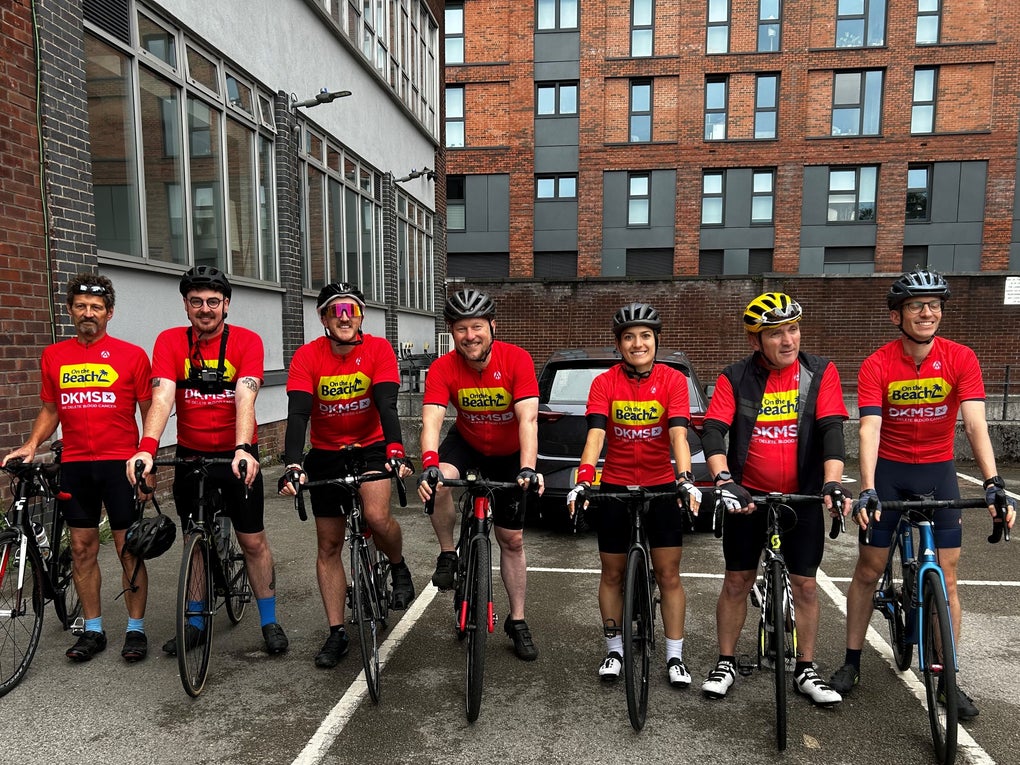
On the Beach complete Manchester to London bike ride for DKMS UK
A personal connection
DKMS was delighted to be chosen as On the Beach’s first ever Charity of the Year for 2024/5, and we are so grateful for their support in our fight against blood cancer. On the Beach’s relationship with DKMS dates back to 2019, after their former Head of Business Intelligence, Andy Clague, sadly passed away aged 46, after living for two years with non-Hodgkin lymphoma, a form of blood cancer.
Since their colleague passed away, On the Beach have been working with DKMS on registration events, helping to expand the stem cell donor registry to support other people in need of a lifesaving match. The partnership has expanded and formalised the support that On the Beach has given to DKMS over the years. Andy was himself a keen cyclist, so this 350km challenge was a natural next step.

The challenge
The brave team of 7 cyclists and 2 support cyclists from On the Beach cycled over 350 kilometres across England, from their office in Manchester to the DKMS UK office in Chiswick, west London -- a major feat that they completed over three days. Despite a few early setbacks and couple of bike replacements, the team arrived in London on Sunday, and made some quick stops at a few of the major London landmarks on their way to Chiswick. Just last month, a team from On the Beach also took part in the Great Manchester Run in support of DKMS. In total, they have raised thousands of pounds for DKMS UK.

Charles Rowe, Corporate Partnerships Manager at DKMS UK, says, “The team from On the Beach have taken on a truly incredible challenge in memory of their colleague Andy. We really appreciate the support they have shown us over the past six years, and especially since we were made their first official charity partner last year. We were so happy that Andy’s brother Dave and his family were able to join us at the finish line to celebrate. The money raised from this challenge will help us to register hundreds of potential life savers, and give more patients who need a stem cell transplant a second chance at life”.


